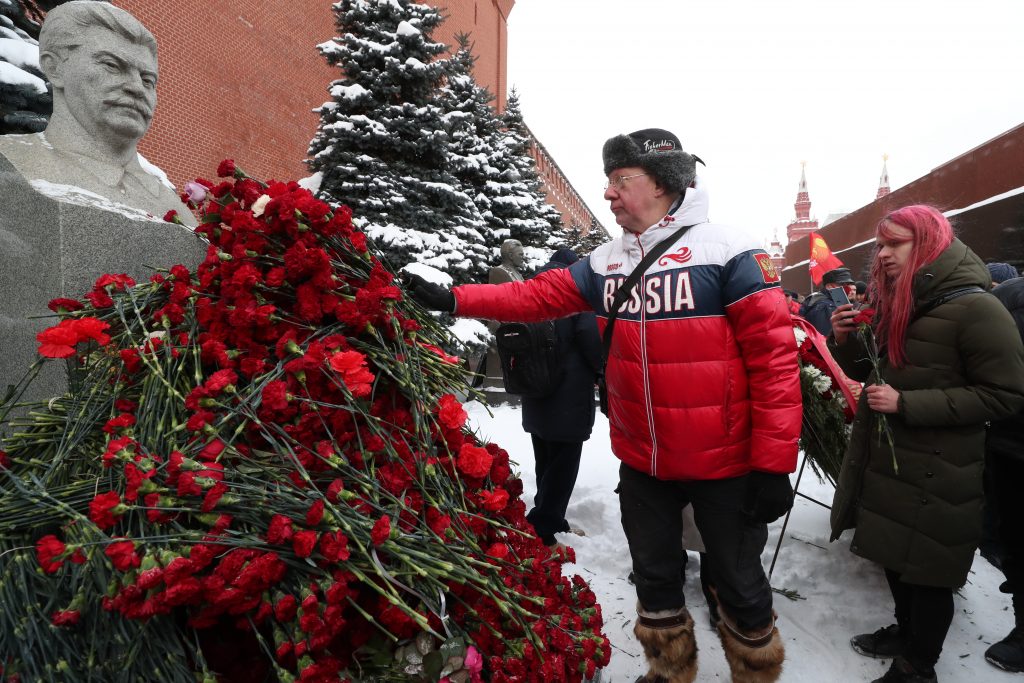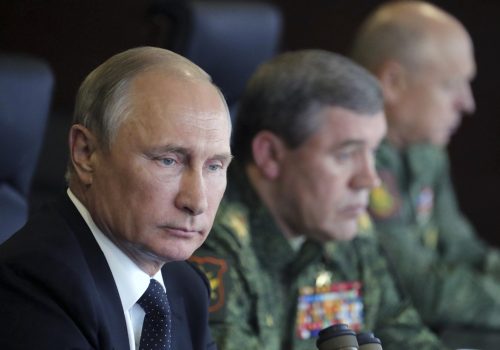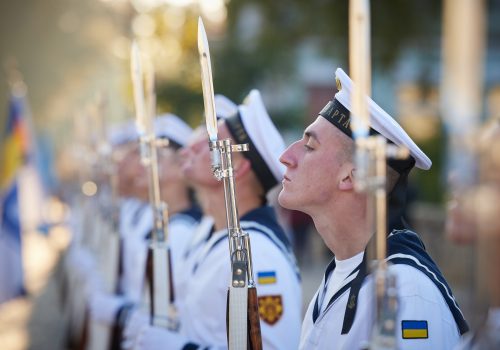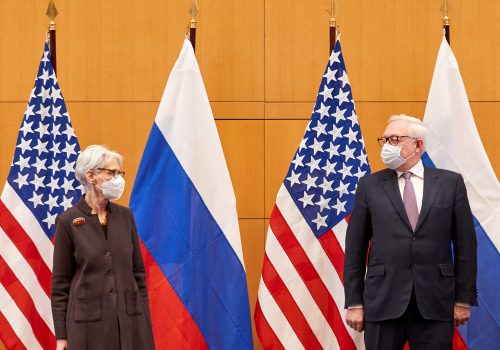On December 28, 2021, Russia’s Supreme Court ruled to liquidate Memorial International on charges of “repeated violations of the foreign agents law.” The decision marks a new milestone in the Putin regime’s efforts to silence debate over Soviet-era crimes and rehabilitate the country’s totalitarian past.
One of Russia’s oldest and most eminent human rights organizations addressing Stalinist-era repression, Memorial had earlier been included on the growing list of civil society organizations, media outlets and other institutions designated as “foreign agents” by the Russian authorities. This politically motivated legal framework is being used by the Kremlin to stifle pluralistic debate and free expression. The shuttering of Memorial’s vital work is a direct attack on history and memory in Russia.
Memorial’s forced closure carries special weight because of the organization’s singular role as a living archive for the stories, memories, and experiences of the millions who suffered under Stalin’s purges and other periods of Soviet repression. Controlling what constitutes “historical truth” and discouraging independent research is a chillingly effective tactic in consolidating authoritarian power, while also stigmatizing and discrediting human rights and civil society organizations.
Over the last two decades, Putin has mobilized the country’s politics of memory to serve his own political interests. The Russian government has forcibly bent the arc of the country’s historical narrative to diminish the individual voices of those who suffered under the Great Terror while glorifying the Soviet Union’s role in the allied victory over Nazi Germany. This narrative was even enshrined in the Russian Constitution in 2020.
It is no coincidence that during recent court proceedings, state prosecutor Alexei Zhafyarov attacked Memorial for its role in exposing Soviet crimes while emphasizing the importance of honoring Russia’s WWII legacy. “Why should we, descendants of the victors, be ashamed and repent, rather than take pride in our glorious past? Memorial is probably paid by someone for that,” the prosecutor argued.
Stay updated
As the world watches the Russian invasion of Ukraine unfold, UkraineAlert delivers the best Atlantic Council expert insight and analysis on Ukraine twice a week directly to your inbox.
The International Coalition of Sites of Conscience, of which Memorial International is a founding member, works to ensure that the most challenging periods in history are remembered and used to spark dialogue about contemporary human rights issues. The Coalition’s members in Russia, including Memorial International, Perm-36, and Last Address, have reported increased government repression targeting memory initiatives and other efforts to cultivate space for open debate.
“For the last ten years, there has been a step-by-step process on the part of the government to create a universal narrative as to how the country should remember the past, stifling the voices of independent historians whose research does not conform to this narrative,” says Natalia Petrova, press attache at Memorial International. “Organizations like Memorial have received signals from the government about which stories and events are acceptable to examine and which are not.”
According to Petrova, one of the main themes that was originally sensitive for the state was the Second World War. In recent years, the list has expanded to include the Holodomor (1932-33) and the Katyn Massacre (1940).
“The government uses legislation, pressure, and propaganda in order to consolidate its narratives,” Petrova continues. “Organizations doing memory work that do not conform to the state narrative are shut down. Individual historians resort to self-censorship out of fear of harassment and intimidation. Society is divided and polarized due to the simplistic narratives pushed through traditional and online media.”
Eurasia Center events

Russia’s war on memory reaches well beyond its borders. Memorial’s closure is a symptom of a broader effort on the part of Putin to rehabilitate grand narratives about the USSR. These efforts have dovetailed with the war against Ukraine. For years, the Kremlin has continued to strongly telegraph the notion that Ukraine is not a fully sovereign country with its own culture, heritage, history, and language, but rather an extension of Russia.
“Russians and Ukrainians are one people, a single whole,” Putin stated in an essay published in July 2021. Following the annexation of Crimea in 2014, he downplayed the forced deportation of the Ukrainian peninsula’s 190,000-plus Crimean Tatar population under Stalin’s orders in 1944, commenting, “millions of people of various ethnicities suffered during those repressions, and primarily Russians.”
Meanwhile, the official policy for the Memorialization of Victims of Political Repression adopted by the Russian authorities in 2015 depersonalizes Soviet-era crimes. As scholar Maria Domanska puts it, this means “siding with the perpetrators rather than the victims.”
International support for organizations like Memorial as well as the many museums, archives, memory initiatives, and documentation centers in Russia, Ukraine, Belarus and elsewhere in the region is needed now more than ever as the Russian government increases pressure on historical debate.
Cross-regional networks like the International Coalition of Sites of Conscience, as well as initiatives like the Repressed Art archive, are crucial to ensure that those working on memory in repressive contexts such as Russia are not vulnerable. They also provide important tools to help prevent state-led destruction of archival material.
Offering opportunities to the next generation of historians from Russia through scholarships, conferences, and fellowships will, as Petrova puts it, “ensure that those who are telling the stories that are forcibly excluded from the state’s grand narrative will be able to continue their important work.”
It is vital that the international community, which has demonstrated outsized support for Memorial’s cause through statements, assistance, and advocacy efforts, continues to draw attention to Memorial’s situation so that it stays in the news cycle.
The European Court of Human Rights has already taken up Memorial’s case by applying an interim measure to prevent the organization’s forced liquidation. It is equally important for other institutions such as the Organization for Security and Co-operation in Europe (OSCE), UNESCO, embassies and governments to support Memorial and other embattled organizations in Russia working to preserve the memory of the most challenging chapters of history.
Gina S. Lentine is Director of Development at the International Coalition of Sites of Conscience.
Further reading
The views expressed in UkraineAlert are solely those of the authors and do not necessarily reflect the views of the Atlantic Council, its staff, or its supporters.

The Eurasia Center’s mission is to enhance transatlantic cooperation in promoting stability, democratic values and prosperity in Eurasia, from Eastern Europe and Turkey in the West to the Caucasus, Russia and Central Asia in the East.
Follow us on social media
and support our work
Image: Russians attend a flower laying ceremony at Soviet leader Joseph Stalin's grave by the Kremlin Wall marking Stalin's 142nd birth anniversary in December 2021. (Sergei Karpukhin/TASS via REUTERS)




